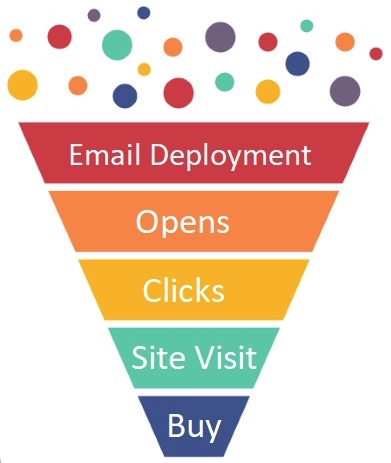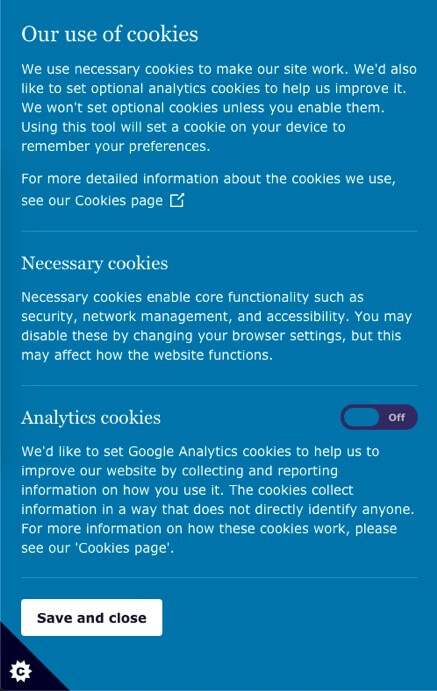Social commerce is an exciting proposition that I feel can both deliver ‘full funnel’ but also elevate the fan/user experience. A great example of this is an activation by Ellesse, who recently launched their new catalogue via a livestreamed shoppable concert with Zara Larson on TikTok. This engaging format gave the user the opportunity to buy items whilst enjoying an exclusive live music gig – thus placing the user and their own consumption habits at the heart of the experience.

Tell us about your role – what does a typical day look like for you?
Influencer Marketing Best Practice Guide
Aside from the fan experience itself, we will start to see rights holders becoming increasingly sophisticated from a digital perspective; with many of the top tier organisations evolving to operate as digital publishers in their own right, likely causing a shifting of the current sport publisher landscape.
I am primarily responsible for leading and growing Fuse’s digital service proposition, an increasingly important part of the business as we strive to help close the digital gap between the sport industry and the wider media landscape.
What areas of digital strategy should brands in sport be focusing on in 2022?
In the next year, I anticipate that we’ll likely see the blending of both the physical and virtual worlds accelerate as emerging technologies gain wider adoption and become more accessible. More sport organisations will add digital and social enhancements to live events, as well as bringing the energy, immediacy, and excitement of in-person experiences to the digital realm. City Football Group are already in the process of building a virtual reality version of the Etihad Stadium, enabling fans to be part of the action in an alternative manner, interacting with a traditionally physical experience digitally, as the fan takes even greater control.
When unrivalled scale and engagement is coupled with sophisticated planning and AdTech, it will be a rich opportunity for brands wanting to compete in this space without the overheads of a long-term sponsorship deal. We’ve already seen Chelsea FC, who boast incredible scale, including 35M followers on Instagram and 9m on TikTok, take commercial packages to marketeers and media agencies.
Some notable client successes include helping to shape Just Eat and FedEx’s respective digital campaigns as part of their UEFA Champions League sponsorships alongside creating Trivago’s digital strategy with Chelsea FC.
Fuse works with many big sports brands – what are the biggest challenges you face in context of the sports industry?
Rights holders continue to see brands demand more robust partnership outcomes, particularly around measurability and full funnel KPIs. This, among other factors, is why rights holders and broadcasters have identified the digital discrepancy between the sport industry and the modern media landscape as a priority area to correct.
Several top-tier rights holders, such as City Football Group, UEFA and Chelsea FC have already built out sophisticated full-funnel digital propositions. By doing so, they have started to demonstrate that every pound spent on sports sponsorship activated digitally can outperform that which is spent on ‘traditional’ digital marketing – the differentiator being sports fans’ passion and engagement.
We are already producing work for our clients that rival the sophistication seen from other marketing channels. Our campaign with Vodafone and the British Irish Lions pushed all major brand metrics featuring a 360 plan, including creating the most successful Lions app in Tour history, AR features, a world first 5G-powered jersey signing to allow players to sign super fans jerseys from 8000 miles away, and a performance dashboard using Vodafone tech to help boost player performance. We’re excited to see this kind of work continue and evolve as we plan for H2 and 2023.
Irrespective of the strides taken by rights holders digitally, the social and digital landscape has undeniably transformed the accessibility of sport and how we, as fans, consume it in our day to day. We’ve moved from a world where we saw big brand moments in linear, to a world where you can experience and engage with your favourite player or team whenever you want. Whether it’s watching behind the scenes content on TikTok, a livestream on Twitch, or daily highlights via Goal.com – the opportunity to engage with sport is more abundant than ever.
How do you predict the industry will evolve in future? Any trends/innovation that will come to the forefront?
Equally, this presents a lucrative opportunity when viewed through the context of sport; whether executed via API-driven in-feed shoppable livestreams, or scannable QR codes or objects, the fan appetite and engagement is unrivalled. Nike’s Air Jordan’s selling out in 23 minutes via an exclusive Snap code at an NBA game is a perfect illustration of this. This year we’ll expect to see Klarna and their Chicago Bulls partnership give fans access to shoppable social and digital content featuring fashion looks by their NBA ambassadors Zach LaVine and Lonzo Ball.
Amelia Dabell is Digital Planning Director at Fuse, a global sports and entertainment agency. We caught up to find out about her role, and how sports media and sponsorship is changing.
One of my favourite aspects of my role is that it varies day to day, ranging from pitching for new business with brand sponsors that have a digital or performance focus, to creating digital activation strategies, or implementing new processes to strengthen the quality of our digital outputs across the account teams.
What’s next for Fuse?
Brands need to evolve their sport strategy to mirror this shift by moving away from traditional planning peaks and immersing their brand into the omnipresent world of modern fandom. By doing so, the incremental exposure within today’s digital algorithms will make the business return even more lucrative.
In the increasingly fragmented media landscape that we find ourselves operating in today, fighting for user attention is a constant challenge for brands. Marketeers have started to put more emphasis on interaction and engagement scores versus traditional reach and view metrics. Whether through immersive tech such as VR or AR, talent/influencers or through community-led environments like YouTube and Twitch – the emphasis needs to be on fan participation and putting them in the driving seat.
Sport is a marketing territory that no longer delivers solely on long-term brand awareness and broadcast driven ROI. Our goal is to modernise the offering of sports sponsorship within the modern-day marketing mix. We want to demonstrate that the digitisation of the industry will act as a watershed moment; unlocking compelling brand opportunities that can deliver across metrics.





